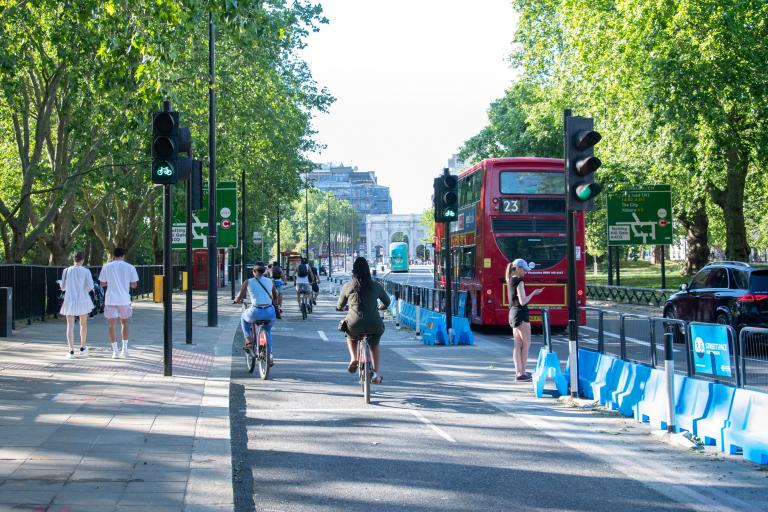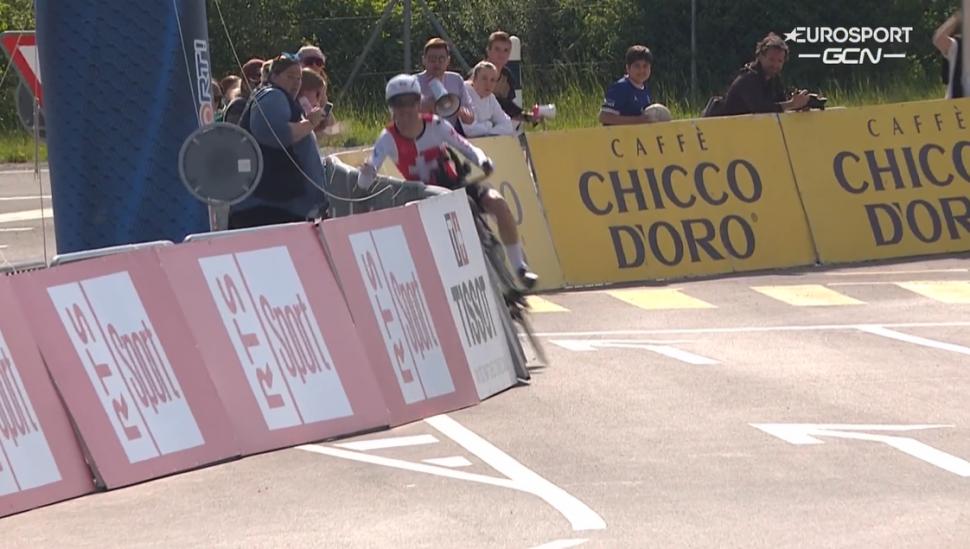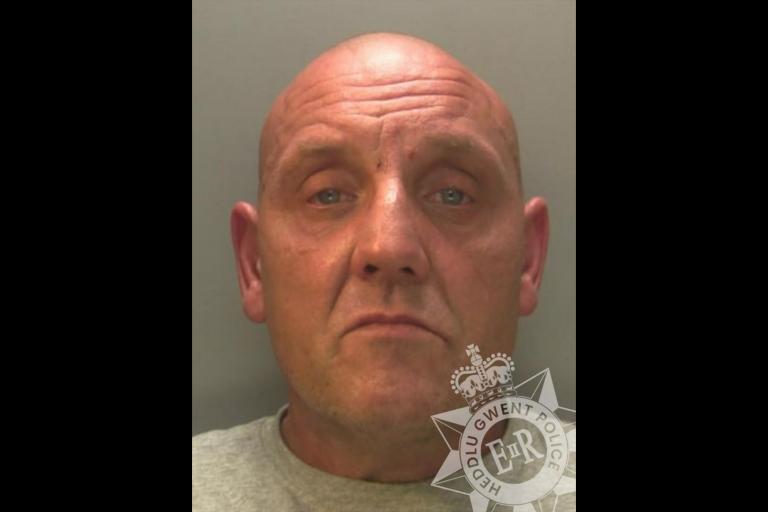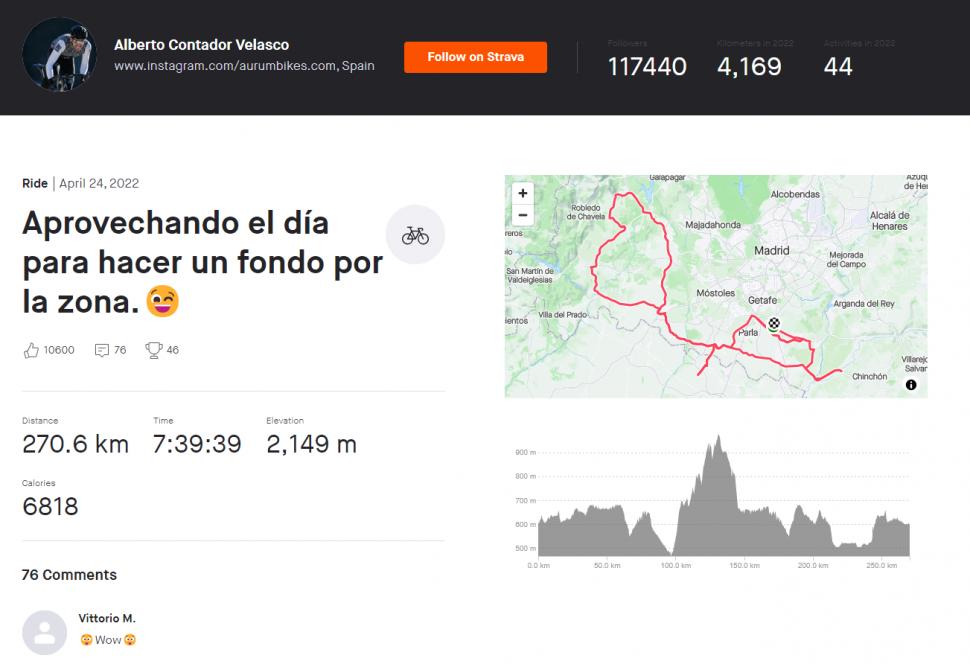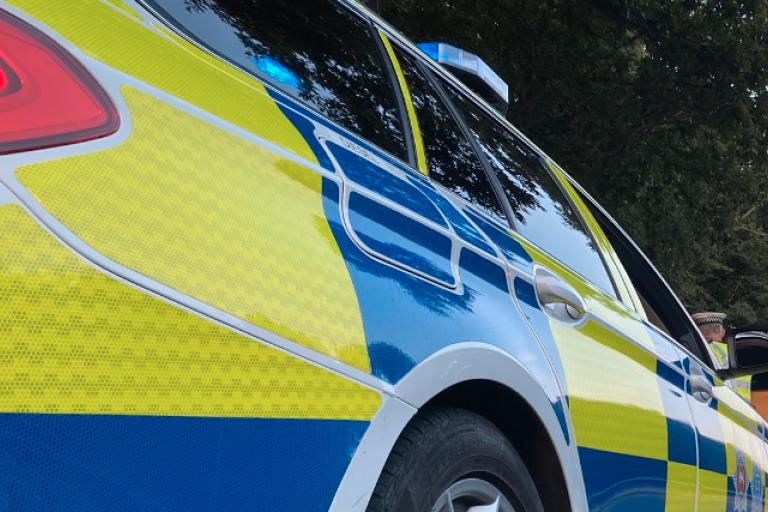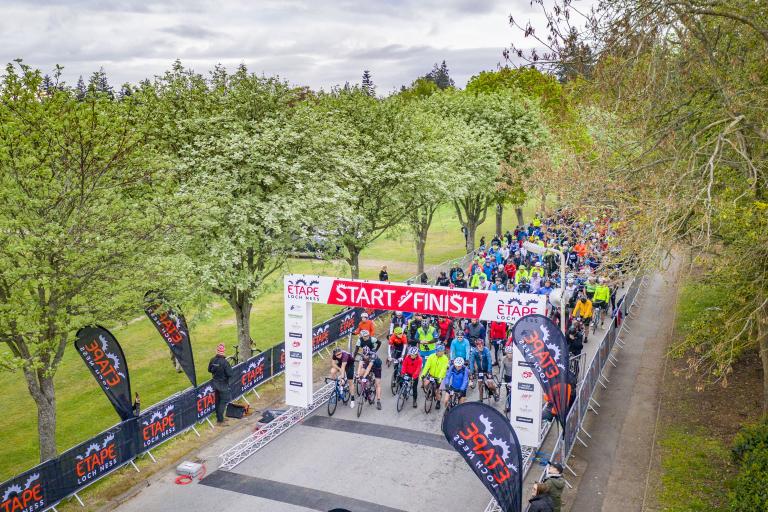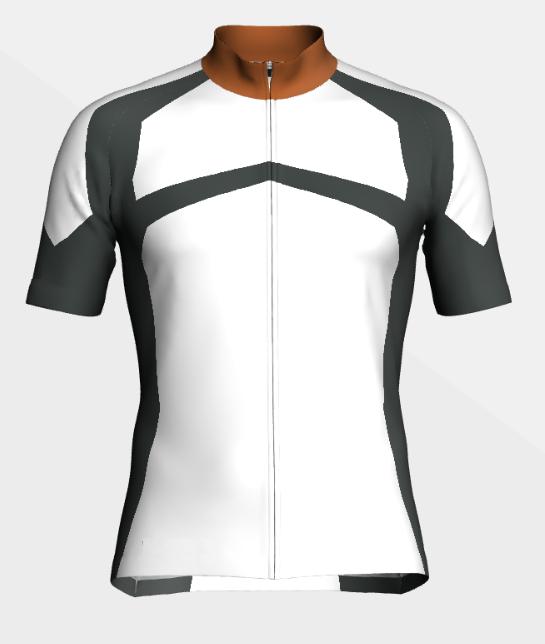- News
- Reviews
- Bikes
- Accessories
- Accessories - misc
- Computer mounts
- Bags
- Bar ends
- Bike bags & cases
- Bottle cages
- Bottles
- Cameras
- Car racks
- Child seats
- Computers
- Glasses
- GPS units
- Helmets
- Lights - front
- Lights - rear
- Lights - sets
- Locks
- Mirrors
- Mudguards
- Racks
- Pumps & CO2 inflators
- Puncture kits
- Reflectives
- Smart watches
- Stands and racks
- Trailers
- Clothing
- Components
- Bar tape & grips
- Bottom brackets
- Brake & gear cables
- Brake & STI levers
- Brake pads & spares
- Brakes
- Cassettes & freewheels
- Chains
- Chainsets & chainrings
- Derailleurs - front
- Derailleurs - rear
- Forks
- Gear levers & shifters
- Groupsets
- Handlebars & extensions
- Headsets
- Hubs
- Inner tubes
- Pedals
- Quick releases & skewers
- Saddles
- Seatposts
- Stems
- Wheels
- Tyres
- Health, fitness and nutrition
- Tools and workshop
- Miscellaneous
- Tubeless valves
- Buyers Guides
- Features
- Forum
- Recommends
- Podcast
news
Are disc brakes to blame for Alaphilippe horror crash?; Kate Hoey says Highway Code changes are a "nightmare" for drivers; Cyclist chased by "crazy" kerb-mounting phone driver; Enough with the tunnels, Elon; Party like it's 2009 + more on the live blog
SUMMARY
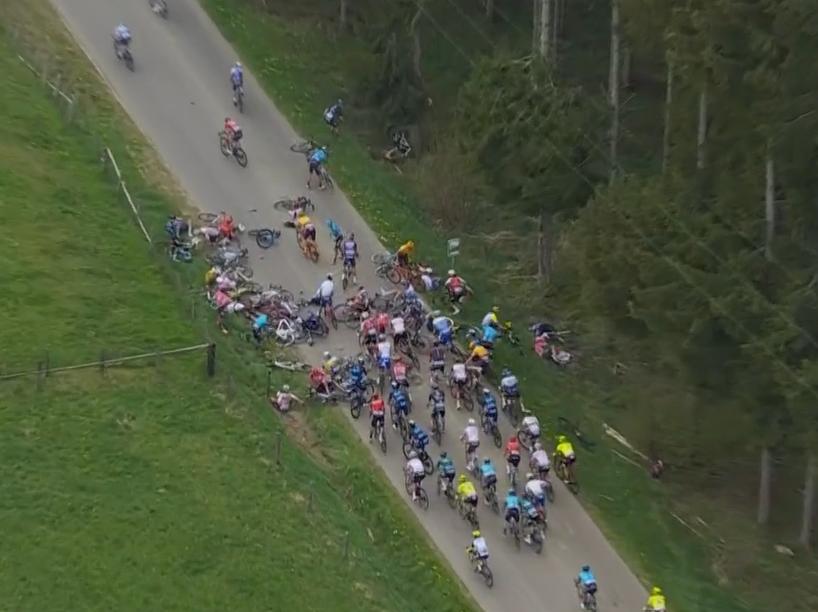 Liege-Bastogne-Liege 2022 crash
Liege-Bastogne-Liege 2022 crash26 April 2022, 17:18
Reaction roundup: “When you’re accustomed to privilege, equality feels like oppression”
Former MP and full-time controversialist Kate Hoey’s comments that motorists need a stronger voice to tackle the “very well-organised cycling lobby” got quite a few of you talking in the comments and on Twitter, to say the least.
Here’s a selection of some of your thoughts:
Kate Hoey clearly lives in a little bubble of reality separate to the rest of us. I mean even if we ignore the reality of her nonsense… cars need a bigger lobby group. Really?
That's a bit like asking someone to stand up and fight for Shell's tax rights, or asking Nigel Farage round for a meal because he doesn't look like he gets to indulge himself enough.
To be fair, the cars are all getting bigger and bigger – it only makes sense that the lobby groups for them increase in size accordingly to accommodate them.
She also seems to overlook the fact that the AA and RAC are both big pro-motoring groups with lots of influence and were very much involved in pushing through the changes to the Highway Code.
I mean the Association of British Dimwits (sorry, drivers) only has a few hundred members and they seem to mostly be a bunch of reactionary nutters. It's not as if anyone should take any notice of what they, or Kate Hoey, think.
Kate Hoey - Reliably Wrong About Everything. https://t.co/QKT4oNZkDP
— 𝙾𝚟𝚎𝚛𝚕𝚊𝚗𝚍𝚎𝚛 (@overlandertheb1) April 26, 2022
how many more powerful lobbies does she want? Motor Industry, Oil companies, Conservatives....
— Gooseman (@Gooseman1250) April 26, 2022
“It’s a nightmare”?
Is it? I’m driving exactly the same as I always have. Nothing has changed for me.
— Bike Rogers (@bike_rogers) April 26, 2022
Yes it's nightmare having to start complying with the rules of the road, far too long drivers have allowed their driving standards to slip. Now they're struggling to readjust to actually follow the rules of the road
— Berkshire Cyclist (@BerkshireCyc) April 26, 2022
What a nightmare for drivers that 100 of them are killed by cyclists every year. Oh hang on...
— Sir Chris was once a Racer 🇺🇦 (@AracerRacer) April 26, 2022
Drivers. Never not being attacked, witchhunted & victimised since 1905.
— Karl Mullen (@JamJarJail) April 26, 2022
As they say, when you're accustomed to privilege, equality feels like oppression
— Tino Oudesluijs (@TinoOudesluijs2) April 26, 2022
Romain Bardet’s concerns about the use of disc brakes in the peloton also, unsurprisingly, sparked some deliberation in the comments:
Right, then. I propose that all of the professional road bikes be refitted with olde style rod brakes. That should give them a margin of error for reaction time...
(I don't disagree with him that if you have disc brakes that will stop you "instantaneously" then you are more likely to push it to the limit. Just as they did when everyone in the peloton was using rim brakes).
The thing that no one considers when complaining about discs being too good in the peloton – By the time the type of brakes makes a difference, reaction times will already be causing a crash in a tight bunch.
I'd disagree with you partially.
In my experience the biggest cause of group accidents is over-reaction in the bunch. You're right in saying that reaction times are key; what tends to happen is there is an initial movement from a rider in the bunch. Around that first movement people need to make adjustments. Factoring in reaction time, the adjustments needed to compensate for that first movement get progressively larger and larger.
Ultimately this creates a ripple that will continually increase in size until someone either can't move sufficiently/in time (and there is a coming together and potentially a crash), or the ripple reaches an area of the bunch where there is sufficient space to dissipate without contact.
What disc brakes do enable is greater initial, and subsequent, reactions in the bunch. This potentially speeds up the scaling of the ripple effect outlined above, so more ripples could reach potential accident-causing size more quickly, giving them less opportunity to naturally dissipate... so more crashes.
However, the bunch schools riders pretty aggressively, so any brake grabbing antics will have been beaten out of most riders long before they reach world tour level. Therefore, whilst I believe discs could be an accident enabler, in reality I doubt they are.
Regardless of your views on disc brakes, I reckon Gaz pithily summed up the general feeling around that most persistent of pro racing debates:
Disc brakes ate my hamster....... https://t.co/8Y8ptnDZtY
— Gaz. (@gazwagon) April 26, 2022
26 April 2022, 16:30
Go on Elon, you know you want to…
Comment of the day, from road.cc reader jh2727, on what the great genius of our time Elon Musk might think of next:
London should definitely get some of those tunnels Elon is always going on about, they could put electric, and even self driving vehicles in them. While they are at it they could design the cars to carry the maximum number of passengers and then couple several cars together.
But why stop there? Why not put those cars on rails, that's what London needs. Thank goodness for the genius of Elon, thinking of stuff that us mortals would never have thought of.
In a few years’ time, genius will strike again and Elon will invent a light weight transport device – powered solely by the person being transported. Perhaps it will only have two wheels, perhaps it'll have a small motor and battery to help with the hills.
I can't wait to see what he comes up with.
The President of the European Cyclists’ Federation came up with a similar suggestion for Mr Musk:
Will our new #boss take up his “boss battle” and get himself a #bicycle? pic.twitter.com/tn28XJRCAs
— Henk Swarttouw (@copenhenken) April 26, 2022
26 April 2022, 16:21
26 April 2022, 16:15
“Some people can’t cycle as they need to transport a cello”
“Some people can’t cycle as they need to transport a cello” pic.twitter.com/dHBy14jEMT
— Timothy (@westcountrytim) April 26, 2022
26 April 2022, 15:54
“I'm sure those broken white lines are there for a reason…”
I'm sure those broken white lines are there for a reason. It's a shame this driver didn't know what that was though.
Even when you think you're cycling in a safe place, there are drivers around to show you, you never are. @A38Cycleway
(Driver reported. Camera cleaned) pic.twitter.com/Jh4uGweV9c
— Your Average Joe (@FrankleyMan) April 26, 2022
Nice to know the camera was cleaned…
26 April 2022, 15:09
Hayter on fire, as Swiss rider comes a cropper at Romandie
Not a bad start to the Tour de Romandie for British time trial champion Ethan Hayter, who has smashed his way around the 5.1km prologue to take the race's first leader's jersey, beating former world TT champion Rohan Dennis by four seconds.
Felix Großschartner and Hayter's Ineos Grenadiers teammate Geraint Thomas placed third and fourth respectively, ten seconds behind the flying Londoner.
Ethan Hayter absolutely smashing that prologue 🤩 #TDR2022 #TourDeRomandie pic.twitter.com/iljPXp4FWl
— Katy M is counting down to the GIRO (@writebikerepeat) April 26, 2022
Ethan Hayter absolutely drilled that TT. Gurned and churned his way round the circuit masterfully #TourDeRomandie
— The TT Podcast 🚴♂️ (@ttpdcst) April 26, 2022
But spare a thought for young Valère Thiébaud, riding for the Swiss national team, who came a cropper after misjudging the tight final bend.
26 April 2022, 15:44
26 April 2022, 14:37
The poise, the panache – and Remco wasn’t bad either
Beautiful effort. Great timing, form and technique. Remco good as well. pic.twitter.com/GvKP33JdqU
— Phil Gaimon (@philgaimon) April 24, 2022
Team Climate Justice has more UCI points than Lotto-Soudal
— Fugue State Affiliated Media (@Eden_EdenEden) April 24, 2022
Harsh, but fair.
26 April 2022, 14:29
Party like it’s 2009: Bertie’s still got it – Contador posts insane 270km ride on Strava
It looks like El Pistolero still has a few bullets left…
Seven-time grand tour winner – or nine, depending on what your stance on Spanish cattle farming is – Alberto Contador posted this frankly insane Sunday ride to Strava, and in doing so, made me feel a lot worse about my own weekend mileage.
The 39-year-old, who retired from the sport in 2017, covered over 270km of hilly terrain to the south and west of his hometown of Pinto, on the outskirts of Madrid, in under eight hours – averaging a mind-boggling 35km/hr.
Do I hear murmurings of a comeback on the cards? Hell, if 87-year-old Alejandro Valverde can still do it at the top of the sport, why not?
In any case, with both Spartacus and Bertie in the news, today has a strong whiff of 2009 about it. Let’s just hope a certain Texan doesn’t raise his head…
26 April 2022, 13:42
Are disc brakes to blame for Liège-Bastogne-Liège horror crash?
Bardet on Alaphilippe's Liege crash on the front page of @lequipe this morning. Says the road was "like a descent from a ski station that keeps getting frozen all winter. There were lots of holes where the crash happened" pic.twitter.com/uF00eOJyIp
— Peter Cossins (@petercossins) April 26, 2022
Romain Bardet has claimed that new bike technology, such as disc brakes, is allowing pro riders to take more risks and resulting in more crashes in the peloton.
The in-form DSM rider sacrificed his own chances of victory at Liège-Bastogne-Liège on Sunday to rush to the aid of the stricken Julian Alaphilippe, after the world champion fell into a ditch during a shocking mass pile-up with 60 kilometres to go.
Alaphilippe suffered a punctured lung and multiple fractures after hitting a tree during the 80km/h crash.
Yesterday on the blog we reported that Bardet and Tom Pidcock, who also careered off the road, blamed TotalEnergies rider Jérémy Cabot for causing the crash, though the Frenchman defended his actions and said he had “never taken ill-considered risks.”
In L'Équipe this morning, Bardet called for a change in behaviour within the peloton, arguing that riders are now taking more risks than ever – a trend, he says, that is being assisted by advances in bike technology.
In particular, the Frenchman, who has twice finished on the podium of the Tour de France, said that the now widespread use of disc brakes was a major concern.
Bardet claimed that the increased stopping power of disc brakes has shortened the reaction time of riders caught behind a crash.
“You can brake at the last minute, except that human reaction times haven't followed the technological evolution,” he said.
“The margin of error that was there before doesn’t exist any longer.”
From experience, if a crash occurred in front but I had stopped, safely, in time I would immediately be preparing for the, almost guaranteed hit from a rider who judged it a millisecond too late. Disc brakes are great n all but the grip that the tyre provides is still the same..
— Tom Portsmouth (@tompey_13) April 26, 2022
20-year-old British rider Tom Portsmouth, who rides for Intermarché-Wanty-Gobert’s feeder team Mini Discar, responded to Bardet's claims, tweeting: “From experience, if a crash occurred in front but I had stopped, safely, in time I would immediately be preparing for the almost guaranteed hit from a rider who judged it a millisecond too late.
“Disc brakes are great and all but the grip that the tyre provides is still the same.”
> What’s wrong with Chris Froome’s disc brakes?
Bardet, who was visibly shaken by the crash and appeared distraught after the race, also told the French paper that, as he emerged from the ditch after making sure Alaphilippe was receiving medical help, “I was almost run over by a completely mad DS trying to get back up to the front. Sometimes, the humanity...”
He criticised the road where the crash took place, which he claimed was full of potholes, describing it as “like a descent from a ski station that keeps getting frozen all winter”, and said that he “feared the worst” when he saw Alaphilippe.
“Julian was struggling to breathe, he couldn't speak, he couldn't move... I was shouting out, but no one was listening to me. I felt like he was going to stay there, all alone, forever.”
26 April 2022, 12:01
26 April 2022, 11:57
10 days until the Giro – how did that happen?
For those of us who base our year around the World Tour schedule:
It's 10 days until the Giro d'Italia starts. How has this even happened? In my mind, it's still mid-March.
— Sadhbh O'Shea (@SadhbhOS) April 26, 2022
There's absolutely no chance that we’re almost into grand tour season already. Surely Omloop was only two weeks ago, right?
Which reminds me, better book my flights to Italy…
26 April 2022, 10:50
Cyclist chased by kerb-mounting phone driver in “bizarre and terrifying” footage
Bloody hell.
This video, uploaded to YouTube last night by cycling activist Mike van Erp – better known as CyclingMikey (or the bike riding Batman, as one motorist disparagingly referred to him) – highlights the real dangers inherent in trying to make the roads safe for those on two wheels.
The cyclist who captured the video, who then sent it on to Mike, had allegedly just filmed a motorist using his phone behind the wheel in the Forest Hill area of London in February.
As we can see from the terrifying footage, the driver took exception to this piece of helmet cam activism, chasing the cyclist in his car after what we assume is a passenger tried to initially catch him on foot.
The motorist even mounts the kerb at one point during the pursuit, as the cyclist desperately pleads for passers-by to call the police. The bike rider finally escaped by turning into a private drive and switching off his lights.
> CyclingMikey ends up on car bonnet during confrontation with angry motorist
According to Mikey, who claimed he was assaulted himself by a phone driver in January, the Met Police told the cyclist they couldn’t identify the driver.
Mike has posted the video to Twitter and YouTube in an attempt to track down the driver, with some cyclists responding to the “shocking” footage by calling for a life ban for the motorist.
“Insane. That calls for prison time and a life ban from driving,” said one commenter.
“I recently got chased in a similar manner after calling out to a driver who was driving on the wrong side of the road. He did a U-turn and chased me, overtaking and brake-checking me twice while yelling abuse. It was all captured on front and rear cameras with the car and driver clearly identifiable.
“I submitted the video to police but never heard anything more about it.”
Makes my blood boil as well as want to weep 😢
— AnnGreggs 💙 🇺🇦 (@AnnGregoryRN) April 25, 2022
That's scary. The cyclist must have been terrified & worn-out
— Bernie (@Bernieadufe) April 25, 2022
And yet this does not surprise me that this kind of behaviour is so common in society today. People are literally triggered at any level into such aggression. I hope he gets caught.
— thisisthatian (@thisisthatian) April 26, 2022
This is why on any route I ride regularly I have a mental map of bail-out points where I can get somewhere a car can't follow. I resent having to have this but there are a lot of dangerous angry people out there in possession of one of the world's most dangerous weapons, a car.
— Rendel Harris (@Rendel_Harris) April 26, 2022
We’ll keep you up to date with this story if any more details emerge.
26 April 2022, 10:46
Spartacus is back! (Kind of...)
Exciting day for 🇨🇭🚴♂️:
1. @f_cancellara is holding a pressconference (1pm): "Spartacus is back at racing".
He will announce the promotion of @SwissRacingAcad to become a ProTeam. FC has acted as a mentor since july 21. Will be the first 🇨🇭ProTeam since @IAM_Cycling (2013-16).— Emil Bischofberger (@bischofberger) April 26, 2022
26 April 2022, 09:43
I was certainly missing “a healthy dose of sheer bloody mindedness” during my painfully slow spin in the hills yesterday…
26 April 2022, 09:41
Be less like Elon, and more like Grace
Reflecting on my 2nd at #LBL, I've had a lot of people comment on or question why I was so happy and smiling 😆. Simply, I'm always happy when I can give my best in a race no matter what the result is. This would be a devastating job if I was only disappointed when I don't win!
— Grace Brown (@GLBrown321) April 26, 2022
26 April 2022, 09:31
Enough with the tunnels, Elon…
You’d think taking over Twitter – and possibly ruining 90 percent of the source material for this blog – would prove enough of a distraction at the moment for tech billionaire and Bond villain candidate Elon Musk.
But no, he’s still pushing his daft cars in tunnels idea on the world, despite evidence that the Las Vegas-based prototypes of Musk’s congestion-busting “future of transport” are already – you guessed it – experiencing congestion.
Tunnels anyone?
— Elon Musk (@elonmusk) April 24, 2022
For those of you scratching your heads, “Teslas in Tunnels” is Musk’s ingenious plan to “solve the problem of soul-destroying traffic” by creating a new subterranean network where users can hitch a lift across town in an electric car. Yep, that’s right – it basically means more roads for cars, only this time underground.
So to answer Belinda’s question…
Does Mr Musk like bikes?
— Belinda (@reallyspoketome) April 25, 2022
Although, maybe there’s hope yet. Back in 2018 – remember then? – the Tesla owner said that his vision for his underground network would actually prioritise cyclists and pedestrians over cars.
Now, I wonder if my 250 followers on his stupid bird app would be enough to convince him to reconsider…
26 April 2022, 08:18
Won’t someone please think of the drivers? Kate Hoey calls for more powerful motoring lobby after Highway Code changes
Fuck me. I'd hate to see what shit we'd have to put up with from drivers if they had a more powerful lobby. pic.twitter.com/FCSjypFQlB
— Katy (@TheBlueUlysses) April 25, 2022
As anyone who has followed British or Northern Irish politics in the last 25 years will know, ex-Labour MP Kate Hoey has some… let’s just say… forthright views on a number of issues.
A life peer – that’s Baroness Hoey to you – and former Minister for Sport under Tony Blair, the Antrim-born politician is known for her pro-Brexit, anti-LGBT, anti-immigration, pro-hunting stances, as well as recently cosying up to the more extreme elements of anti-protocol Northern Irish loyalism.
> Kate Hoey calls for bikes to be registered and cyclists to pay "road tax"
Hoey is also, she’ll have you know, a great friend of cyclists – she once said she wants “more people cycling”, for the record – who often has a funny way of showing it.
Way back in 2003, Hoey arguably coined that persistently repeated phrase “law-breaking lycra louts” (the world owes a great debt to her there) in an article for the Daily Mail.
And a decade later she called for bikes to be registered and for cyclists to pay ‘road tax’, after the then-MP for Vauxhall was caught driving her Mini through a red light. What was that about law-breaking, Kate? Maybe she was wearing lycra at the time...
> MP who called cyclists "law-breaking Lycra Louts" fined for driving through red light
Well, dear readers, I regret to inform you that the Baroness is at it again.
In an interview with GB News this week – another great friend of cyclists everywhere – she said: “I think there is a very well-organised cycling lobby in this country that will always speak out for the cyclist.
“And I’m afraid that we need some really strong people speaking out for drivers because quite honestly it’s a nightmare these days for a driver, especially now they have changed the Highway Code.”
Won’t someone please think of the drivers?!
I have to say, the thought of shouty, red-faced motoring groups like the Alliance of British Drivers growing in strength makes me slightly queasy…
While the ABD partied in the streets (sitting in their illegally-parked cars of course) after Hoey’s comments, some weren’t as impressed:
Yeah, those poor downtrodden drivers. https://t.co/Gns0ZualAE
— Katy (@TheBlueUlysses) April 25, 2022
I guess that’s proof that at least one other driver has acknowledged there’s been a change to the Highway Code.
Haven’t seen it apply in practice yet…— Johnny Plectrum (@johnnyplectrum) April 26, 2022
Has she thought of joining the AA or the RAC (both of whom backed the changes)
— James Craig Wightman (@its_life_jim) April 26, 2022
Sadly, I’m blocked by the former honourable member for Vauxhall who chose Brexit despite being MP for one of the highest remain constituencies in the country. Never knowingly right about anything. Perhaps she could take the bus?
— Scrap the Bristol Mayor on May 5th (@martin_frasehog) April 25, 2022
I forget who said it, but something along the lines of "it's hard to ignore Kate Hoey, but usually worth the effort" is a maxim I find useful.
— Jacques Le Singe (@John_the_Monkey) April 25, 2022
After obtaining a PhD, lecturing, and hosting a history podcast at Queen’s University Belfast, Ryan joined road.cc in December 2021 and since then has kept the site’s readers and listeners informed and enthralled (well at least occasionally) on news, the live blog, and the road.cc Podcast. After boarding a wrong bus at the world championships and ruining a good pair of jeans at the cyclocross, he now serves as road.cc’s senior news writer. Before his foray into cycling journalism, he wallowed in the equally pitiless world of academia, where he wrote a book about Victorian politics and droned on about cycling and bikes to classes of bored students (while taking every chance he could get to talk about cycling in print or on the radio). He can be found riding his bike very slowly around the narrow, scenic country lanes of Co. Down.
Add new comment
45 comments

Hirsute
|
2 years ago
1 like
"Ministers have pitched ideas to tackle the cost of living, as record inflation pushes up food and energy prices.
Sources said Transport Secretary Grant Shapps suggested relaxing the frequency of MOTs." (BBC)
Surprised they didn't mention MOTs for bikes and road tax !

brooksby
|
2 years ago
1 like
“You can brake at the last minute, except that human reaction times haven't followed the technological evolution,” he said.
“The margin of error that was there before doesn’t exist any longer.”
Right, then. I propose that all of the professional road bikes be refitted with olde style rod brakes. That should give them a margin of error for reaction time...
(I don't disagree with him that if you have disc brakes that will stop you "instantaneously"" then you are more likely to push it to the limit. Just as they did when everyone in the peloton was using rim brakes).

mdavidford
|
2 years ago
0 likes

20-year-old British rider Tom Portsmouth [...] agreed with Bardet
Did he, though? That reads to me like he's saying "If I slam on the brakes to avoid something right in front of me, I'm going to get hit from behind, disc brakes or not".
the thing that no one considers when complaining about discs being too good in the peleton. By the time the type of brakes makes a difference, reaction times will already be causing a crash in a tight bunch.

I'd disagree with you partially.
In my experience the biggest cause of group accidents is over-reaction in the bunch. You're right in saying that reaction times are key; what tends to happen is there is an initial movement from a rider in the bunch. Around that first movement people need to make adjustments. Factoring in reaction time, the adjustments needed to compensate for that first movement get pregressively larger and larger.
Ultimately this creates a ripple that will continually increase in size until someone either can't move suffinciently / in time (and there is a coming together and potentially a crash), or the ripple reaches an area of the bunch where there is sufficient space to dissipate without contact.
What disc brakes do enable is greater initial, and subsequent, reactions in the bunch. This potentially speeds up the scaling of the ripple effect outlined above, so more ripples could reach potential accident causing size more quickly, giving them less opportunity to naturally disspate... so more crashes.
However, the bunch schools riders pretty aggressively, so any brake grabbing antics will have been beaten out of most riders long before they reach world tour level. Therefore whilst I believe discs could be an accident enabler, in reality I doubt they are.






Top trolling! As any fule kno knowing the registration number plates are impossible to copy or disguise. The system offers proof positive of who is driving and in no way allows people to wriggle out of legal consequences by claiming their car was borrowed / stolen at the time, refusing to say who was driving, for firms or hire companies to say it's impossible to know who had the vehicle etc.
That's why all cyclists must wear a registration number on their high-viz tabards. That'll have those scofflaws bang to rights.
Well, at least it'll stop lycrist infiltrators blending in with the general population.


Sorry genuinely not trolling. I would have thought the video would have a reasonably clear shot if the plate at some point and the police could use that to see if the registered owner of the car looked like the image on the video and perhaps have a conversation with him if he did?


Sorry genuinely not trolling. I would have thought the video would have a reasonably clear shot if the plate at some point and the police could use that to see if the registered owner of the car looked like the image on the video and perhaps have a conversation with him if he did?
It's really difficult to get a good shot of a plate in the dark even with a good camera; you can see in the video that even when the car is directly behind the cyclist and close up the lights drown the plate. Additionally, many ne'erdowells nowadays use plates with illegal coatings or types of lettering that are designed to create "noise" and so confuse ANPR or speed cameras. That's why on many videos you'll hear the rider shouting out the registration in case the camera doesn't catch it, obviously not an option for this poor guy.
Another possibility is that it was a false plate lifted from a scrapped car, one suspects the sort of people prepared to behave in this terrifying way aren't exactly squeaky clean in other areas of their lives either...

According to the Youtube comments the car in the clip (SA59 XRT) has been scrapped or was using the scrapped cars plates. It would obviously be too much trouble for the Police to interview the last known keeper to see if any useful evidence comes out of it. I'm surprised the original rider didn't put the clip on his own channel as i'm sure I've heard that voice with yellow panniers on the rear view cam before a few times. Whatever happens it's a chilling video and a warning to all of us to be vigilant and take our own safety very seriously.





jh2727
|
2 years ago
20 likes
London should definitely get some of those tunnels Elon is always going on about, they could put electric, and even self driving vehicles in them - while they are at it they could design the cars to carry the maximum number of passengers and then couple several cars together. But why stop there? Why not put those cars on rails, that's what London needs. Thank goodness for the genius of Elon, thinking of stuff that us mortals would never have thought of.
In a few years time, genius will strike again and Elon will invent a light weight transport device - powered solely by the person being transported. Perhaps it will only have two wheels, perhaps it'll have a small motor and battery to help with the hills - I can't wait to see what he comes up with.

Go easy on the skunk! (Always good advice). As usual he's simultaneously behind the times and too techo-fangled. The Netherlands has been hiding the cars underground for a while now.
I think he was watching too much sci-fi in the 80's and 90's. He's just Alan Sugar but instead of being a bit grouchy about the tech he's a wide-eyed enthusiast there. Hmm... not a good combination.

Awavey
|
2 years ago
4 likes
The "cycling wars taking over the countryside" according to the Telegraph https://www.telegraph.co.uk/cars/features/cycling-wars-taking-countryside/
Paywalled, but a piece based on the recent Sheffield North West NPT action and that apparently cyclists like to ride in the countryside, and motorists dont like that, though I think they lose the heart for their argument piece halfway through.


It's when they start quoting their own motoring editor for an opinion, you kind of realise they're struggling abit for an angle. But the comments are just depressing not just from the normal cyclist bingo rubbish, but from others complete detachment on their responsibilities whilst driving a machine with the capacity to maim & kill vulnerable road users, and it's not that they dont recognise their vehicle can seriously injure people, theyre abdicating completely their responsibility to make sure it doesnt.
Pages
Latest Comments
- IanMK 2 sec ago
I don't think this is the problem. There is already money available to local politicians but they still have trouble getting it because of minority...
- Hirsute 19 min 12 sec ago
My wife forgot to tell me about this and now the 48 hour deadline has passed. No ved either.
- mdavidford 37 min 13 sec ago
Do those baby suits come in sport fit, performance fit, or race fit though?
- mark1a 1 hour 28 min ago
Thanks to all at road.cc HQ, I received my t-shirt, socks and stickers in the post this morning. Stickers are already being stuck:
- Simon E 3 hours 17 min ago
The total cost of putting a complete bike on a UK showroom floor is considerably more complex than the Bank of England's inflation figures. Some...
- Hirsute 3 hours 25 min ago
"Around 200 cars" parked up along part of the Peak District have prevented gritting taking place....
- hawkinspeter 4 hours 3 min ago
There's plenty of traffic along Avonvale and Marsh Rd already without needing to encourage it.
- brooksby 4 hours 6 min ago
It's terrible that even when the burly security guard challenges him, and tries to take the bike back, the thief won't let go, just keeps pulling...
- chrisonabike 4 hours 17 min ago
Ah, one of those anachronistic objects! I'm just waiting for "Prius found in prehistoric passage grave". (Maybe left as an offering after its...
- Wingguy 5 hours 4 min ago
That'll be why climbers have such bigger quads than TT specialists and sprinters then.
